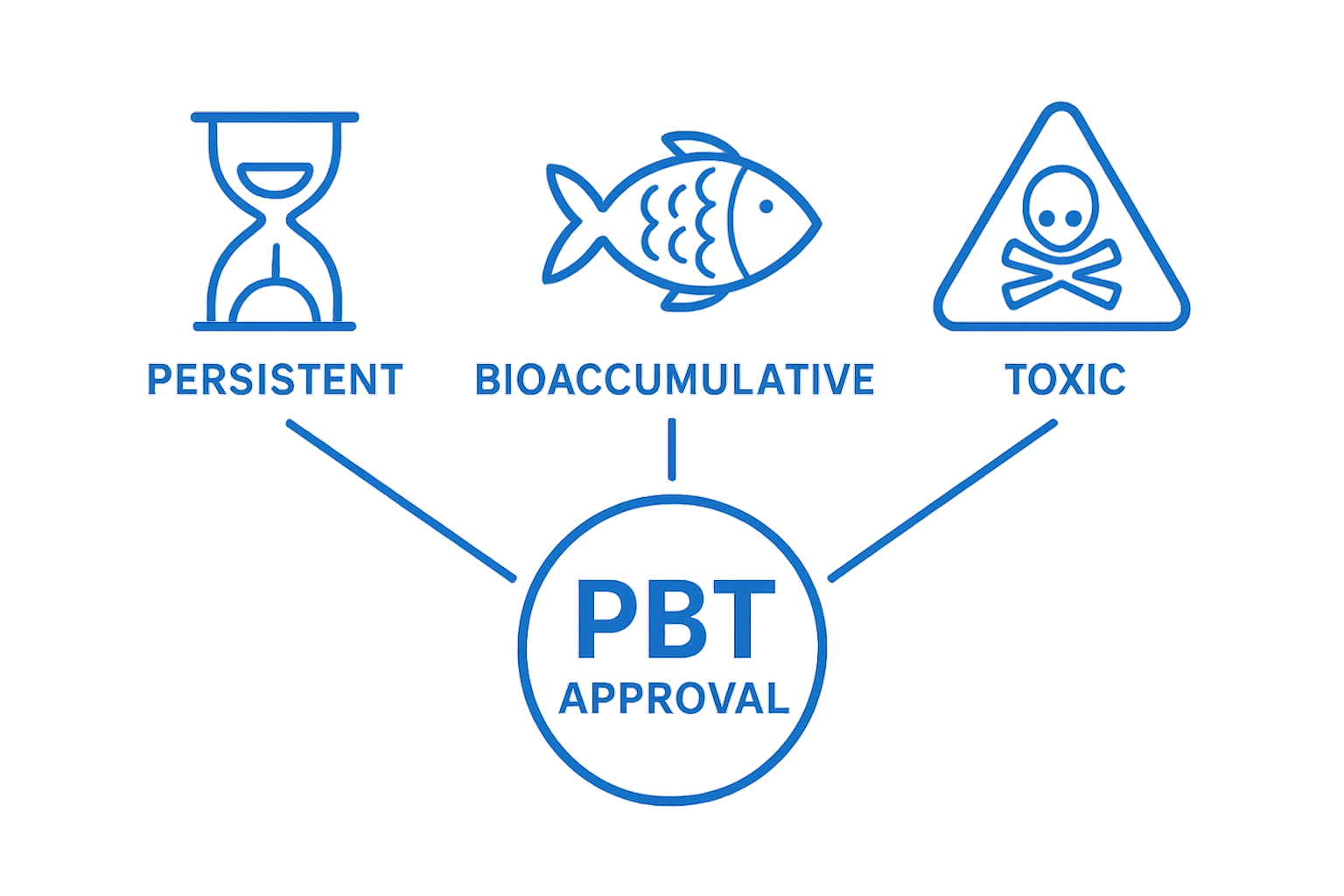
Blog
What is PBT Approval? Understanding Its Importance | RumahHQ

Every property development needs a seal of approval before a single brick is laid, and that’s where PBT approval comes in. Yet, not many realise that missing this step can result in construction being halted and heavy financial penalties. Most think of it as just paperwork, but PBT approval actually works as a powerful shield that protects your investment and safeguards your community.
Table of Contents
Quick Summary
| Takeaway | Explanation |
|---|---|
| PBT approval is vital for chemical safety | It assesses potentially hazardous substances to prevent risks to human and ecological health. |
| PBT chemicals have three key characteristics | They are persistent, bioaccumulative, and toxic, making them a major concern for environmental management. |
| Rigorous evaluation protects community interests | Local authorities ensure that developments meet safety and environmental standards through PBT approvals. |
| PBT approval enhances property value | Properties with this certification are more marketable and financially secure due to regulatory compliance. |
| Failure to comply leads to serious consequences | Developers may face legal penalties or project halts without PBT approval, affecting both costs and timelines. |
Defining PBT Approval and Its Purpose
PBT approval represents a critical regulatory mechanism designed to assess and manage potentially hazardous substances across various environmental and industrial contexts. This process focuses on evaluating chemicals with specific characteristics that could pose significant risks to human health and ecological systems.
Below is a table outlining the three core characteristics of PBT chemicals, providing clear definitions for each term as discussed in the article.
| Characteristic | Description |
|---|---|
| Persistent | Remains unchanged in the environment for extended periods |
| Bioaccumulative | Builds up in living organisms over time |
| Toxic | Capable of causing harmful effects on biological systems |

Understanding PBT Chemical Characteristics
Persistent, Bioaccumulative, and Toxic (PBT) chemicals are distinguished by three fundamental properties that make them particularly concerning for environmental management:
- Persistent: Substances that remain unchanged in the environment for extended periods
- Bioaccumulative: Chemicals that accumulate in living organisms over time
- Toxic: Materials capable of causing harmful effects on biological systems
The EPA’s comprehensive guidelines outline rigorous criteria for identifying and managing these complex chemical compounds. By implementing strict evaluation protocols, regulatory bodies aim to prevent potential long-term environmental and health consequences.
Purpose and Significance of PBT Approval
The primary objective of PBT approval processes is multifaceted, focusing on protecting ecological systems and human populations from potentially dangerous chemical exposures. This regulatory mechanism serves several critical functions:
- Identifying chemicals with high environmental persistence
- Assessing potential bioaccumulation risks in food chains
- Evaluating potential toxic impacts on human and animal health
- Developing targeted mitigation strategies for high-risk substances
Under the Toxic Substances Control Act, regulatory agencies like the EPA systematically review and restrict substances that demonstrate significant environmental and health risks. As research from environmental policy experts indicates, these approval processes are essential for maintaining ecological balance and protecting public health.
By implementing comprehensive screening and monitoring protocols, PBT approval mechanisms ensure that potentially harmful substances are carefully evaluated, controlled, and managed before they can cause substantial environmental or health damage. This proactive approach represents a critical strategy in modern environmental protection and public health management.
The Importance of PBT Approval in Property Development
PBT approval represents a critical regulatory mechanism within property development, ensuring that construction projects meet essential legal, safety, and environmental standards. This comprehensive approval process plays a fundamental role in maintaining the integrity and quality of residential and commercial property developments across various urban landscapes.
Legal and Regulatory Compliance Framework
In the context of property development, PBT (Pihak Berkuasa Tempatan or Local Authority) approval serves as a mandatory certification process that validates a project’s adherence to multiple regulatory requirements. Research from urban planning experts indicates that these approvals are essential for:
- Confirming land use compatibility
- Verifying building design compliance
- Ensuring environmental sustainability standards
- Validating infrastructure development requirements
Developers must navigate a complex landscape of municipal regulations, zoning laws, and construction guidelines. PBT approval acts as a critical checkpoint that guarantees projects align with established urban planning and development standards, protecting both investor interests and community welfare.
Risk Mitigation and Quality Assurance
Beyond legal compliance, PBT approval serves as a robust risk management mechanism for property developments. By subjecting proposed projects to rigorous scrutiny, local authorities can prevent potential construction issues, environmental hazards, and infrastructure inadequacies.
The approval process involves comprehensive assessments that examine:
- Structural integrity of proposed buildings
- Environmental impact assessments
- Infrastructure compatibility
- Safety and accessibility standards
As urban development research highlights, obtaining timely and comprehensive PBT approvals can significantly reduce project risks, prevent costly modifications, and ensure smoother development trajectories.
Ultimately, PBT approval represents more than a bureaucratic requirement. It is a critical mechanism that safeguards community interests, maintains high construction standards, and promotes sustainable urban development. By implementing these thorough evaluation processes, local authorities can ensure that property developments contribute positively to Malaysia’s growing urban landscapes.

Understanding PBT approval requires a comprehensive grasp of several interconnected concepts that form the foundation of this critical regulatory mechanism. These key concepts provide insight into the complexities of managing property development and environmental protection through systematic evaluation processes.
Jurisdictional Scope and Authority
PBT approval operates within a well-defined jurisdictional framework that determines the extent and limitations of local authority interventions. Municipal governance research reveals that these approvals are typically managed by Pihak Berkuasa Tempatan (Local Authority), which encompasses various governmental bodies responsible for:
- Reviewing development proposals
- Enforcing urban planning regulations
- Monitoring construction compliance
- Protecting community infrastructure interests
The jurisdictional scope extends beyond mere bureaucratic processes, representing a critical mechanism for maintaining urban development standards and ensuring sustainable community growth. Local authorities possess the power to approve, modify, or reject development proposals based on comprehensive assessment criteria.
Evaluation and Assessment Criteria
PBT approval processes involve a multilayered evaluation framework that examines proposed developments from multiple perspectives. These assessment criteria are designed to provide a holistic approach to urban planning and development regulation.
Key evaluation parameters typically include:
- Technical Compliance: Assessing architectural and engineering specifications
- Environmental Impact: Evaluating potential ecological consequences
- Infrastructure Compatibility: Examining integration with existing urban systems
- Safety Standards: Verifying adherence to building and public safety regulations
The comprehensive nature of these assessments ensures that development projects meet stringent requirements before receiving official approval. Developers must demonstrate their proposals align with local planning guidelines, environmental protection standards, and community development objectives.
Regulatory Implications and Consequences
PBT approval carries significant regulatory implications that extend far beyond initial project certification. Failure to obtain or comply with approved standards can result in substantial legal and financial consequences for property developers.
These potential implications include:
- Project halting or immediate cessation of construction activities
- Substantial financial penalties
- Potential legal proceedings against developers
- Mandatory retroactive modifications
By establishing clear regulatory boundaries and enforcement mechanisms, PBT approval processes create a robust framework that protects community interests while providing structured pathways for responsible urban development.
How PBT Approval Affects Homeowners and Investors
PBT approval significantly impacts homeowners and property investors by providing critical safeguards that protect financial investments and ensure long-term property value. This regulatory mechanism extends far beyond bureaucratic compliance, offering substantive protections and strategic advantages for property stakeholders.
Financial Protection and Risk Mitigation
For homeowners and investors, PBT approval represents a fundamental mechanism for protecting substantial financial investments. Environmental policy research demonstrates that properties with comprehensive regulatory approvals offer several key financial benefits:
- Reduced potential for unexpected renovation costs
- Enhanced property marketability
- Lower long-term maintenance expenses
- Minimized legal and compliance risks
Investors particularly appreciate PBT approval as a risk management tool that provides transparency about a property’s structural integrity, environmental compliance, and potential future challenges. By verifying a development’s adherence to strict regulatory standards, these approvals offer crucial due diligence protection.
Property Value and Market Perception
PBT approval directly influences property valuation and market perception. Properties with comprehensive regulatory certifications typically command higher market prices and attract more discerning buyers who prioritize quality and compliance.
Key value-enhancement factors include:
- Credibility: Demonstrates adherence to professional construction standards
- Sustainability: Confirms environmentally responsible development practices
- Safety: Validates structural and environmental safety measurements
- Legal Compliance: Ensures complete regulatory alignment
Homeowners benefit from increased property appreciation and reduced potential for future legal complications. Investors can confidently develop and market properties knowing they meet rigorous local authority requirements.
Long-term Investment Security
Beyond immediate financial considerations, PBT approval provides long-term investment security. The comprehensive evaluation process helps prevent potential future challenges related to construction quality, environmental impact, and infrastructure compatibility.
Investors and homeowners gain strategic advantages through:
- Comprehensive risk assessment documentation
- Verified construction methodology
- Transparent development history
- Reduced likelihood of unexpected regulatory interventions
Ultimately, PBT approval transforms from a bureaucratic requirement into a strategic asset that protects financial interests, ensures property quality, and provides peace of mind for homeowners and property investors across Malaysia’s dynamic real estate landscape.
The table below summarises key ways in which PBT approval impacts homeowners and property investors by addressing financial, market, and long-term security considerations as highlighted in the article.
| Impact Area | Benefit for Homeowners and Investors |
|---|---|
| Financial Protection | Lowers unexpected renovation costs and legal risks |
| Market Value | Enhances property credibility and attractiveness to buyers |
| Sustainability | Confirms environmentally responsible development |
| Long-term Security | Minimises unexpected regulatory interventions in the future |
Secure Your Home Project with Hassle-Free PBT Approval
If you worry about the delays, confusion, or legal complications tied to navigating the PBT approval process for your dream home, RumahHQ is here to simplify every step for you. As outlined in our guide on PBT approval, achieving full compliance with local authority standards is essential for protecting your investment, securing permits on time, and ensuring your project meets the highest safety and environmental benchmarks.

Why leave your property’s future to chance? At RumahHQ, our expert team manages all the legal and planning approvals for you, including PBT certifications and government requirements. We offer a transparent experience with free design consultations, fixed-price packages, and robust structure warranties, all tailored for homeowners and government staff in Selangor and Kuala Lumpur. Now is the perfect moment to take action. Visit our end-to-end home construction and renovation solutions to start your worry-free home journey today. Protect your investment, avoid costly setbacks, and enjoy peace of mind throughout your building process.
Frequently Asked Questions
What is PBT approval?
PBT approval is a regulatory mechanism for assessing and managing potentially hazardous substances that are Persistent, Bioaccumulative, and Toxic. It ensures that such chemicals are evaluated for their risks to human health and the environment.
Why is PBT approval important for property development?
PBT approval is crucial for property development as it ensures compliance with legal and safety standards, mitigates risks associated with environmental hazards, and maintains high construction quality to protect community interest.
What are the key characteristics of PBT chemicals?
PBT chemicals are identified by three main characteristics: they are Persistent (remain in the environment for long periods), Bioaccumulative (accumulate in living organisms), and Toxic (capable of causing harm to health and ecosystems).
How does PBT approval affect property investors?
PBT approval provides financial protection for property investors by minimising legal and compliance risks, enhancing property marketability, and ensuring long-term security through verified construction standards and environmental compliance.
Recommended
kontraktor rumah
bina rumah
pinjaman lppsa
pengeluaran kwsp
spesifikasi rumah
rumah batu-bata
pelan rumah
rekabentuk rumah
bina rumah atas tanah sendiri
kontraktor rumah selangor
rumah banglo
Source link











